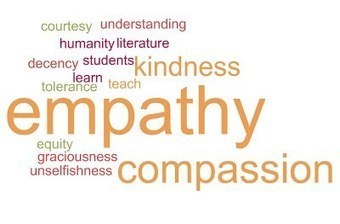
You already know that teaching is so much more than just transferring your knowledge. You’ve all had those teachers who were able to not only give you the information you needed, but who were able to connect with you and leave a lasting impression. When teachers relate to their students, they make the things they teach their students stick, and they break down a lot of barriers that often exist in the classroom.
The key to being a relatable teacher is to be human (Well, that’s lucky because you are human!). Teachers too often expect themselves to be flawless because they think they are supposed to be, but it is OK to make mistakes. We teachers need to laugh at ourselves sometimes when we drop our pens and markers or catch ourselves giving the wrong information. We also need to be ok with not knowing EVERYTHING. It’s a big compliment if your students think you can answer any question they ask instantaneously, but we are not Wikipedia pages, dictionaries, or grammar books. While we are responsible for our lesson plan, we cannot anticipate every question a student might ask. Use this experience, instead, as an opportunity to incorporate the question into a future lesson or even to explore the answer together with your students.
Another great way to relate to your students is to be interested and curious about their opinions, experiences, and knowledge. Sure, that sounds obvious, but it is not a natural skill for everyone. One way we are trained to do this at Via Lingua is to ask open-ended questions. We do not lecture. We elicit. Why? Well, first of all, it gets the students speaking and, second of all, we learn so much about our students this way. We find out that we have many common interests and experiences, which in turn creates a safer and more comfortable atmosphere. Eliciting information from students is a skill that takes practice, but once you get it, it will become a natural part of your conversation style in and outside of the classroom.
If you want to teach a foreign language, learn a foreign language. Learning a foreign language puts you in your students’ shoes. I like to share stories about my own journey learning Italian with my students to show them that I understand the successes and the obstacles of learning another language. Once you pick a place to settle down abroad, make sure you learn some of the local language and culture, as this will deepen your understanding and connection with your students.
The ability to relate to your students combined with the English knowledge you will have after taking a Via Lingua TEFL Certification course will ensure success and all the great rewarding teacher feelings in your teaching career!

